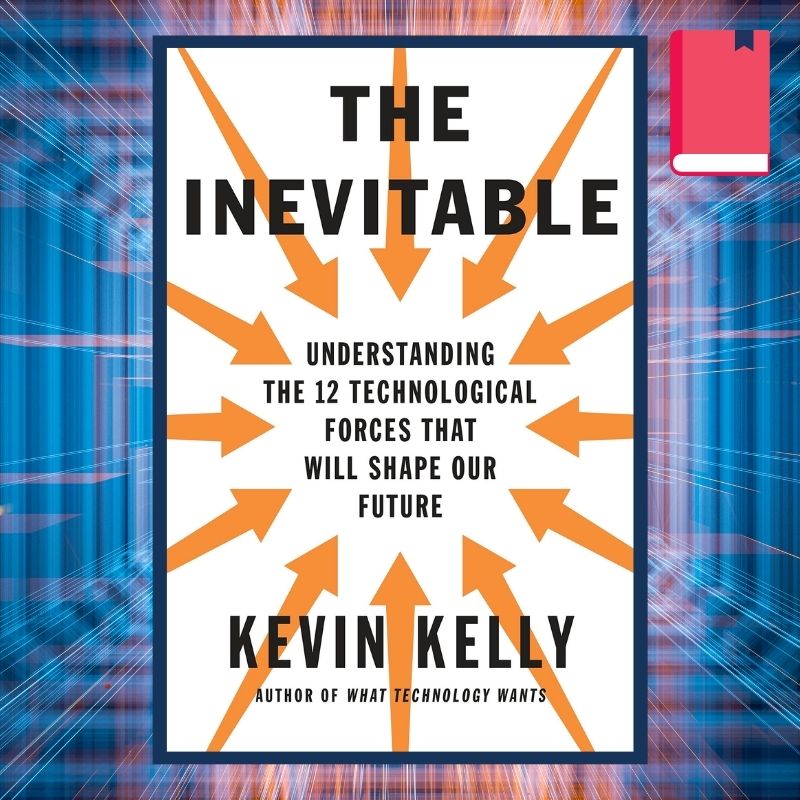Practically all surfaces have become screens, and each screen watches you back. Every aspect of your daily life is tracked by you or someone else. Advertisers pay you to watch their ads. Robots and AI took over your old jobs and created new ones for you, doing work you could not have imagined back in 2016”.
The book lives up to the promise of that riveting intro, as it shows the reader how the coming changes would be consequences of the 12 technological forces that are already in motion.
Wikipedia summarizes these forces as follows:
- Becoming: Moving from fixed products to always upgrading services and subscriptions
- Cognifying: Making everything much smarter using cheap powerful AI that we get from the cloud
- Flowing: Depending on unstoppable streams in real-time for everything
- Screening: Turning all surfaces into screens
- Accessing: Shifting society from one where we own assets, to one where instead we will have access to services at all times.
- Sharing: Collaboration at mass-scale. Kelly writes, “On my imaginary Sharing Meter Index we are still at 2 out of 10.”
- Filtering: Harnessing intense personalization in order to anticipate our desires
- Remixing: Unbundling existing products into their most primitive parts and then recombining in all possible ways
- Interacting: Immersing ourselves inside our computers to maximize engagement
- Tracking: Employing total surveillance for the benefit of citizens and consumers
- Questioning: Promoting good questions being far more valuable than good answers
- Beginning: Constructing a planetary system connecting all humans and machines into a global matrix
The way business is done, buying, selling and exchange of value will all be inevitably impacted by these forces.
This book is a must read if you want to do some meaningful crystal gazing. Kevin Kelly’s writing has the diligent rigor of an analyst, the sweeping width of a philosopher and the lyrical quality of a poet. Consider this excerpt in the context of the 2 trillion questions that humans ask the internet every year: “Answers become cheap and questions become valuable – the inverse of the situation now. Pablo Picasso brilliantly anticipated this inversion in 1964 when he told the writer William Fitfield, ‘Computers are useless. They only give you answers.’ So, at the end of the day, a world of super smart ubiquitous answers encourages a quest for the perfect question”. Kelly observes “A good question may be the last job a machine will learn to do. A good question is what humans are for”. And salespeople are for more.
If there is anything worth hoarding, it is your attention
– Bill Harvey –





